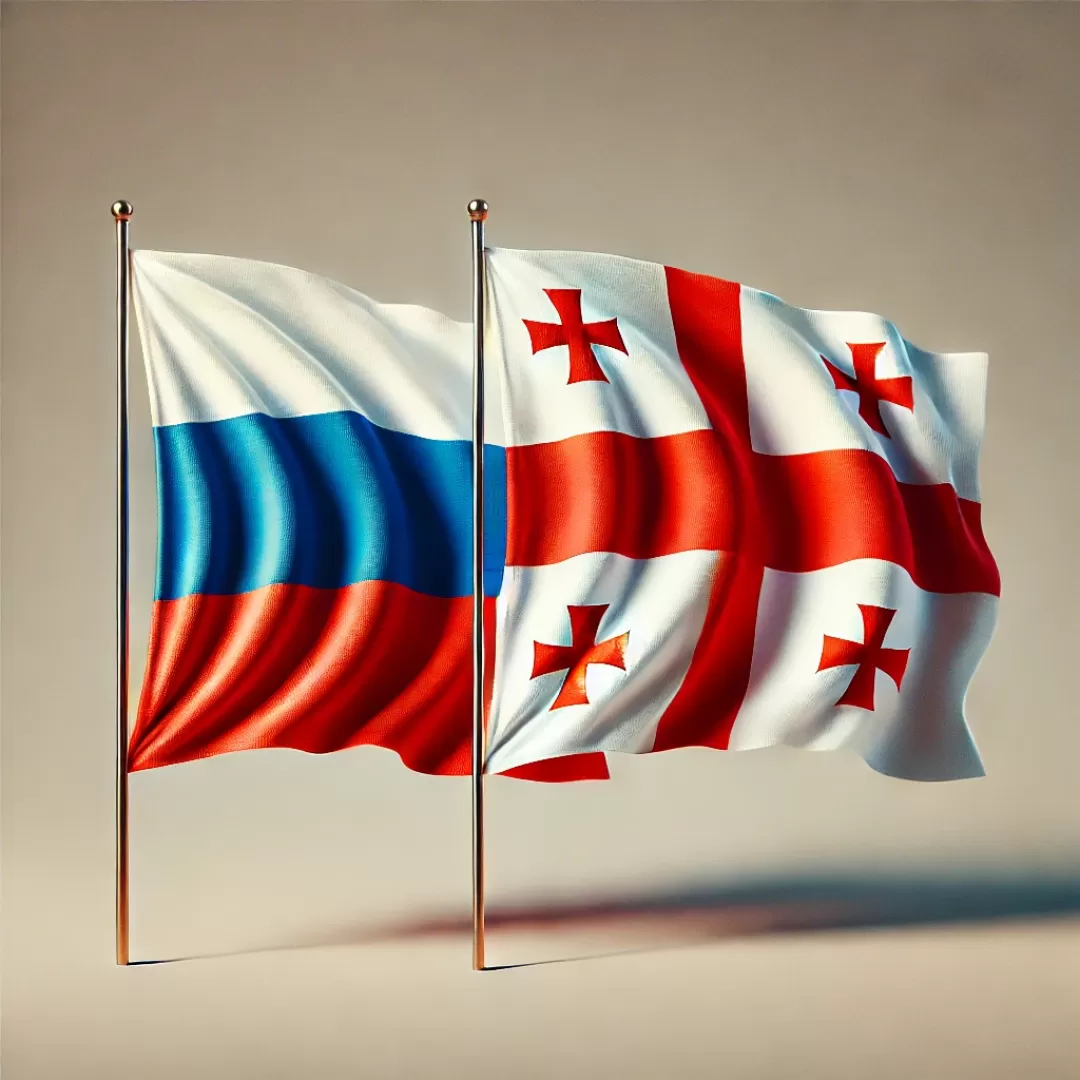
Shifting Dynamics in the Relations Between Georgia and Russia

Georgian-Russian relations show signs of potential improvement, with the war in Ukraine surprisingly contributing to this development. Another factor could be Georgia’s recent parliamentary elections.
Historically troubled relations between Moscow and Tbilisi may see a major shift following these elections. The October 26 vote has left the public with more questions than answers. The ruling party, Georgian Dream (GD), claimed victory, securing nearly 54 percent of the vote, while opposition parties collectively garnered around 44 percent. Data shows GD’s strongest support in rural areas, whereas it struggled in urban centers. The opposition claims irregularities and argues that the results should be overturned. However, in the absence of substantial evidence, achieving this demand is nearly impossible.
Beyond the statistics, the vote reflects a broader geopolitical struggle between the West and Russia. Countries on the periphery, like Moldova, Ukraine, and Georgia, face significant pressure from Moscow, which employs both military and political-economic tactics. If Georgia’s election outcome heightens tensions between Tbilisi and the West, Russia stands poised to benefit geopolitically.
A weakening of Georgia’s ties with the West opens the possibility for further stabilization of relations with Russia. However, it remains highly unlikely that the two nations will restore full diplomatic ties, as this would imply that Moscow would maintain three separate embassies on Georgian sovereign territory: one in Sokhumi, another in Tskhinvali, and potentially a third in Tbilisi. Georgian officials have made statements underscoring this challenge.
Still, Tbilisi and Moscow have several areas where they can cooperate. First is security in the Russian-controlled territories of Georgia. Another area of potential understanding is Georgia’s reduced cooperation with NATO, which has long irritated Moscow. Tbilisi’s strained relations with Washington may serve as another incentive for Moscow to strengthen ties.
Warming relations with Russia could also make Georgia less resistant to participating in the 3+3 format, which includes Armenia, Azerbaijan, and Georgia, plus three major powers (Iran, Russia, and Turkey). This initiative explicitly aims to exclude Western powers. Eventually, Tbilisi may see that the initiative is gaining momentum without its participation, making it unwise to avoid the format entirely. However, managing relations with Russia within the framework of the 3+3 will present its own challenges.
Improved relations with Russia may lead Georgia to seek concessions from its northern neighbor. One scenario could involve Moscow minimizing barriers between the separatist regions of Abkhazia, South Ossetia, and the rest of Georgia—a move that Tbilisi would likely welcome, as it would allow for closer economic ties with these regions.
Georgia might also consider amending its constitution, which currently enshrines a pro-Western trajectory, a clause passed under GD. However, the recent election results, which left GD with fewer parliamentary seats, make this change unlikely in the near term. Nonetheless, discussions about the clause’s practicality continue to spark debate in the country.
Warming relations with Russia also raise questions about how Georgia might balance its foreign policy between the West and Moscow. This has been a persistent challenge for Georgian leaders since the Soviet Union’s breakup, as a true multi-vector foreign policy requires maintaining equidistance between major powers.
The improved ties with Russia should be seen within the framework of Georgia’s emerging pivot toward Asia. Relations with China are thriving; the two countries signed a strategic partnership agreement in 2023, and Tbilisi recently awarded a Chinese consortium the right to develop the long-stalled Anaklia deep seaport on Georgia’s coveted Black Sea coast.
Georgia has also signed multiple agreements on energy cooperation with Turkey, along with increased collaboration on trade and regional connectivity. Furthermore, the Georgian prime minister made a surprise visit to Tehran following the tragic death of Ebrahim Raisi in a helicopter crash in northern Iran, potentially paving the way for warmer relations in a traditionally cool bilateral setting.
For Tbilisi, tensions with the West bring both domestic challenges and international opportunities. The country has shifted its focus from an exclusive orientation toward the West to an increasingly independent pivot toward Eurasia. Yet it remains unclear how far Russia is willing to go in its relations with Georgia, given that the issue of the occupied territories will inevitably resurface. So far, all signals from Moscow indicate an unwillingness to make concessions on this issue.
Emil Avdaliani is a professor of international relations at European University in Tbilisi, Georgia, and a scholar of Silk Roads.





